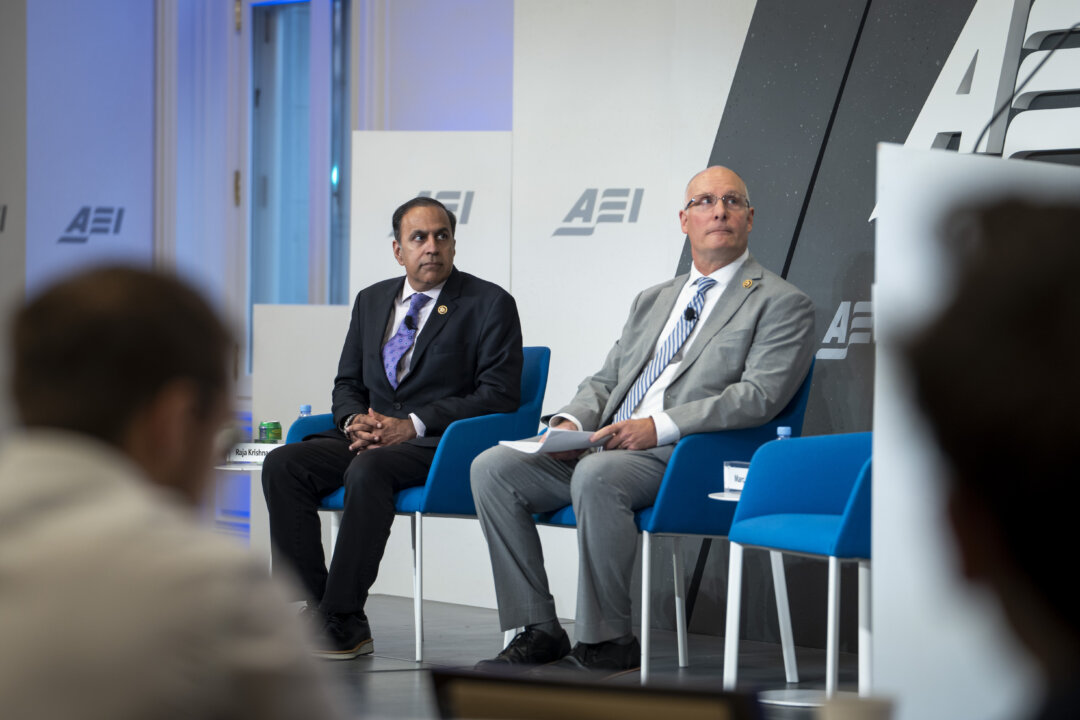The committee’s working group on critical minerals policies holds its final meeting today.
A bipartisan group of lawmakers on the House Select Committee on the Chinese Communist Party will unveil three bills on Dec. 11, after holding multiple meetings to discuss how to reduce China’s dominance of critical mineral supplies.
Reps. Rob Wittman (R-Va.) and Kathy Castor (D-Fla.), who led the committee’s Critical Minerals Policy Working Group, are due to introduce the Earth Sciences and Cooperation Enhancement Act of 2024.
Wittman and another fellow working group member, Rep. Haley Stevens (D-Mich.), will introduce an amendment to the Export Reform Control Act of 2018.
The third bill, called the Critical Minerals Workforce Enhancement Act, will be introduced by Reps. John Moolenaar (R-Mich.), the committee chair, and Ritchie Torres (D-N.Y.), a member of the working group.
Moolenaar and Rep. Raja Krishnamoorthi (D-Ill.), the committee’s ranking member, formed the bipartisan working group in June to look into U.S. supply-chain dependency on critical minerals. The group is due to hold its final meeting on Wednesday.
In 2023, China was the top producer of 29 of the 50 minerals recognized by the U.S. government’s 2022 critical minerals list, according to a report published by the Congressional Research Service in April. Meanwhile, the United States relied entirely on net imports for 12 of the 50 critical minerals.
“Reliance on critical minerals from other countries and China’s dominance in producing and refining them raises concerns about critical mineral supply chain disruptions in the United States,” the report reads.
The Earth Sciences and Cooperation Enhancement Act of 2024 would authorize the secretary of the Department of the Interior to sign memoranda of understanding (MOUs) with foreign governments to promote public and private collaboration on critical mineral supply chains in fields such as advancing geologic mapping, mineral sources assessment, and data analysis.
Regarding foreign nations, the legislation emphasizes that the United States should work with partner countries that are strategic allies and encourages partnerships between U.S. entities and their foreign counterparts.
The legislation would appropriate $3 million for the secretary of the interior to advance MOUs for fiscal year 2025.
“By leveraging international cooperation and geoscientific expertise, the Act aims to enhance the United States’ ability to manage critical mineral resources, improve supply chain resiliency, and reduce reliance on foreign adversaries for essential materials,” the committee said in a statement shared with The Epoch Times.
The amendment to the Export Reform Control Act of 2018 aims to strengthen the U.S. domestic critical mineral supply chains by establishing export controls on black mass, a mixture of various components in recycled lithium-ion batteries, and swarf, a byproduct of the metal machining industry.
A license is required for the export, re-export, or in-country transfer of black mass and swarf if the end-user is a foreign adversary or a related entity. Chinese entities under the direct or indirect influence of the Chinese Communist Party or its military would be denied the license.
“The bill seeks to facilitate the sustainable recycling and recovery of critical minerals such as lithium, cobalt, and nickel from spent batteries; enhance U.S. processing capabilities; and limit adversarial control over essential materials,” the committee said in a statement shared with The Epoch Times.
The Critical Minerals Workforce Enhancement Act would amend the Immigration and Nationality Act, allowing those with critical minerals experience to apply for a national interest waiver as part of their EB-2 visa petition.
The legislation would also encourage international educational exchanges that specialize in critical minerals and provide funds for scholarships, fellowships, and grants to assist professional development in the sector worldwide.
“By addressing workforce gaps through targeted workforce reforms and fostering international educational collaboration, the Act seeks to ensure a robust and skilled labor force capable of meeting the growing demand for critical minerals essential to national security and clean energy technologies,” the committee said in a statement shared with The Epoch Times.

